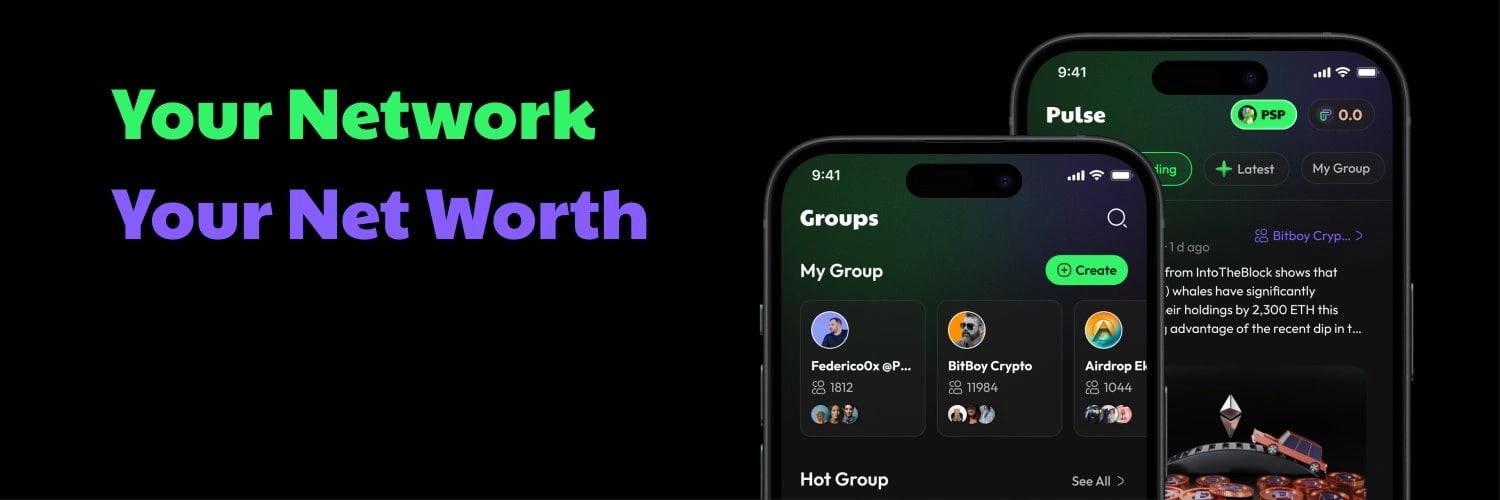Subscribe to wiki
Share wiki
Bookmark
Pulse
The Agent Tokenization Platform (ATP):Build autonomous agents with the Agent Development Kit (ADK)
0%
Pulse
Pulse is a decentralized platform, launched by Phemex, combining social interaction with trading, creating a space where users can engage in financial transactions and community-driven experiences. It aims to integrate social trading with real yield generation through decentralized networks.[1][2]
Overview
Launched on May 30th, 2024, by Phemex, Pulse is a decentralized social trading platform designed to integrate financial activities with social interaction. It seeks to address challenges associated with centralized social media by providing users with ownership of their content and digital identities.
Pulse aims to be a platform where cryptocurrency enthusiasts can share insights, follow traders, and execute trades within a single environment, using the $PULSE token to facilitate engagement. The platform operates on Ethereum's layer 2 network to enhance scalability and user experience.[1][2][3][4][5]

Products
Pulse App
The Pulse App is a decentralized platform that aims to combine social interaction with cryptocurrency trading. It enables users to create digital identities through the Pulse Soul Pass (PSP), a token on the Ethereum Layer 2 Optimism network. The app allows users to post content ("casts") that can receive tips in $PULSE tokens.
It also integrates trading functionality through decentralized (DEX) and centralized (CEX) exchanges within the platform. Users can earn $PULSE by completing tasks and engaging with content, with these tokens intended to convert to the Pulse Network's native token after the mainnet launch.[6]
Pulse Network
The Pulse Network aims to improve scalability on Ethereum Layer 2 by utilizing Polygon CDK Validium. This method incorporates zero-knowledge proofs and off-chain data storage to help reduce gas fees. Transaction fees on the network are covered using the $PULSE token instead of ETH.
The network's architecture includes Validator nodes responsible for data validation and a Sequencer for block creation. The Data Availability Committee (DAC), made up of Pulse Groups that stake $PULSE, handles data verification and block production. DAC participants involved in block production are rewarded with $PULSE, which is distributed among their members.
Additionally, $PULSE serves as a DAO token, allowing holders to participate in voting on network parameters. The Pulse Network also supports ERC4337 for secure, mnemonic-free wallets and gasless transactions, and ERC404 for improving liquidity by enabling the fractionalization and trading of NFTs similar to digital tokens.[7]

Tokenomics
Pulse Token ($PULSE)
The Pulse Network has a total supply of 21 billion $PULSE tokens. These tokens are used for transaction fees, rewards, and governance within the network.[6][8]
Allocation
The $PULSE token allocation is as follows:
- Community: 30% for airdrops in three rounds.
- Global Partners: 10% with a 6-month linear unlock.
- Key Group Owners: 5% with a 6-month linear unlock.
- Validator Rewards: 20% unlocked according to staking APR.
Additionally:
- Liquidity Pool: 15% unlocks at the Token Generation Event (TGE).
- Ecosystem: 20% for team, investors, and ecosystem, with a 1-year linear unlock.[8]
Utility
The $PULSE token has several functions within the Pulse Network:
- Ecosystem Facilitation: It is used to reward users for high-quality content through the Cast and Tipping system.
- Gas and Payment: It covers transaction and gas fees, with an oracle converting ETH prices to $PULSE.
- Governance: Token holders can vote on network parameters related to validation and staking.
- Burn Mechanism: A burn mechanism is employed to regulate the token's supply and value.[8]
See something wrong?
The Agent Tokenization Platform (ATP):Build autonomous agents with the Agent Development Kit (ADK)
